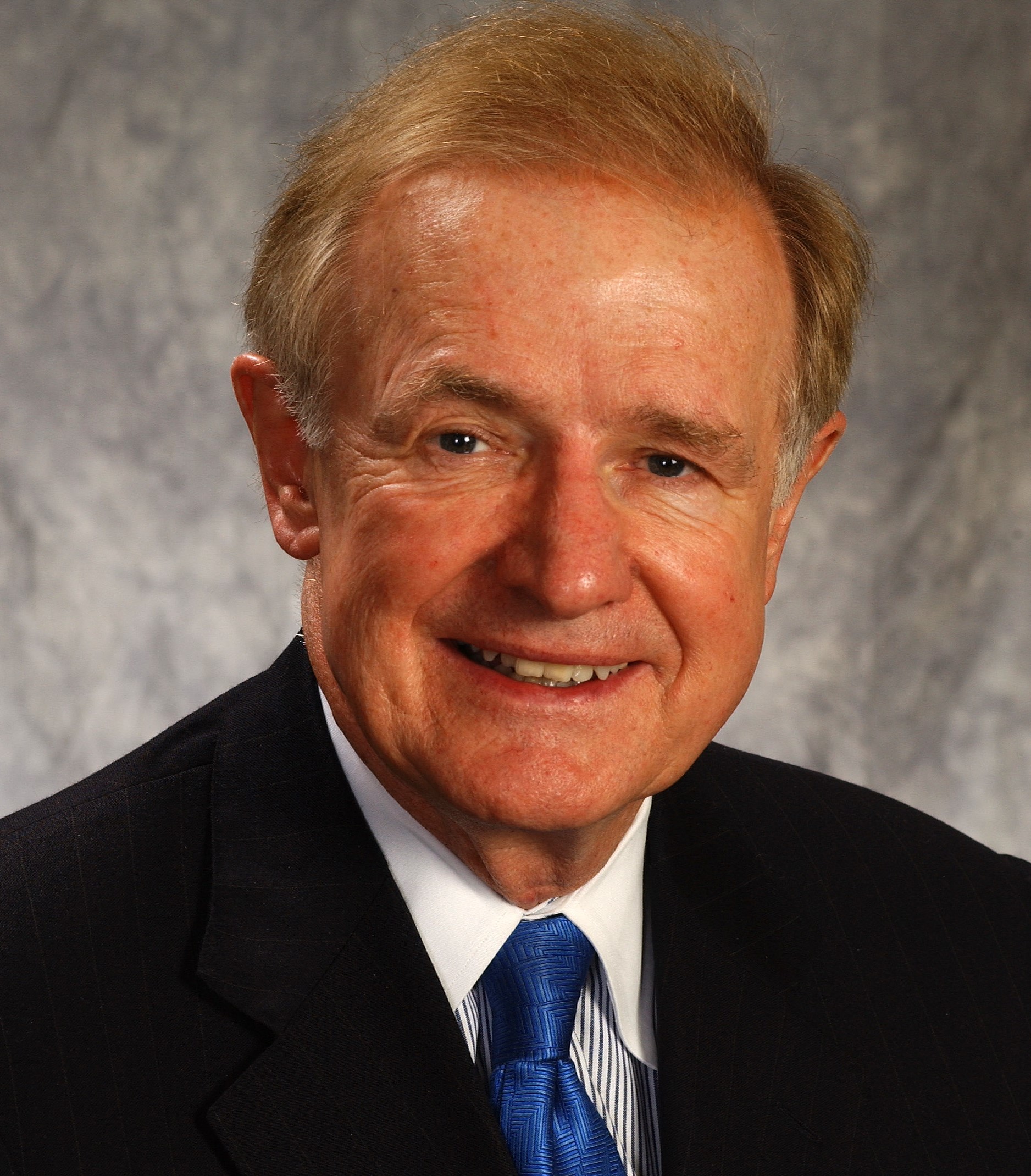Donald W. Riegle
Donald "Don" Wayne Riegle Jr. (* 4. February 1938 in Flint , Michigan ) is an American business leaders , politicians of the Democratic Party and was both a Member of the US House of Representatives and longtime US senator for Michigan.
biography
After graduating from Flint Central High School in 1956, he studied first at Flint Junior College and then at Western Michigan University . He then studied at the University of Michigan , which he graduated in 1960. He completed a subsequent postgraduate course at Michigan State University in 1961. Finally, he completed another postgraduate course at Harvard Business School .
As a candidate for the Republican Party , he was elected a member of the US House of Representatives in 1966 and, after several re-elections from 1967 to 1976, represented the interests of the 7th Congressional constituency of Michigan. In 1973 he switched to the Democratic Party. After the death of Senator Philip Hart on December 26, 1976, Donald W. Riegle, who had already been elected as his successor, prematurely became owner of the First Senate seat ( Senator Class 1 ) for Michigan. In this capacity he was re-elected in 1982 and 1988 and was Michigan's representative in the US Senate until 1995.
As a member of the so-called Keating Five , he was one of the five Senators in the US Senate, along with the Democratic Senators Alan Cranston ( California ), Dennis DeConcini ( Arizona ) and John Glenn ( Ohio ) and the Republican John McCain (Arizona) were accused of corruption . This sparked a major political scandal as part of the so-called savings and loan crisis in the late 1980s and early 1990s. Despite these substantial allegations, he ended his election period, but, unlike Glenn and McCain, did not run again. The main reason for this was that a Senate ethics committee found that he, DeConcini and Alan Cranston had influenced the investigation, while Glenn and McCain were acquitted of the allegations.
Regardless of these allegations, he remained Chairman of the Senate Committee on Banking, Housing, and Urban Affairs from 1989 until he left the Senate in 1995 .
He later went into the private sector and has been a board member of the insurance group WellPoint Health Networks there since 2001 . He is also involved in the Bilderberg Conference and the Council on Foreign Relations . Eventually he also became a member of the advisory board of the Close Up Foundation , an organization for the information and participation of citizens in democracy .
Web links
- Donald W. Riegle in the Biographical Directory of the United States Congress (English)
- Donald W. Riegle in nndb (English)
- Donald W. Riegle, Jr. In: Michigan Historical Collections , University of Michigan-Flint (English, archive inventory with biography)
- Donald Riegle, Jr.'s Biography. In: Vote Smart (English)
- Riegle, Jr., Donald W. In: Our Campaigns (English)
| personal data | |
|---|---|
| SURNAME | Riegle, Donald W. |
| ALTERNATIVE NAMES | Donald Don Wayne Riegle, Jr. |
| BRIEF DESCRIPTION | American politician |
| DATE OF BIRTH | February 4, 1938 |
| PLACE OF BIRTH | Flint , Michigan |


